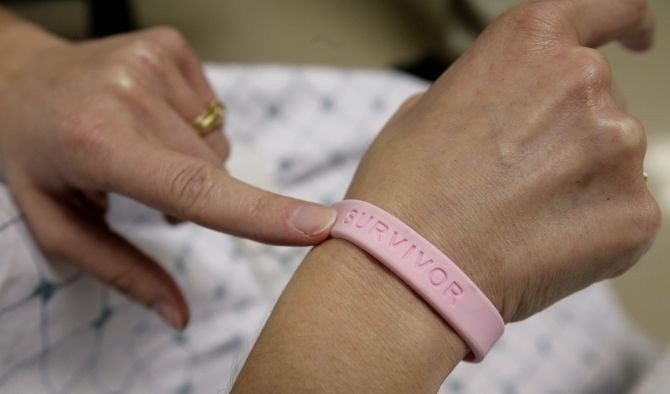Researchers Develop Blood Test that Predicts Breast Cancer Relapse Risk

Researchers from Canada have developed a kind of blood test that can predict whether or a not a woman, who has undergone breast cancer treatment, have a relapse, reported Mail Online.
Early indicator of a cancer recurrence could help save many lives. In the year 2012 alone, some 200,000 women were diagnosed with breast cancer while an estimated 39,000 women died from the cancer in the U.S., the study reported.
"If we can accurately predict which women are at high risk of breast cancer recurrence, it gives the physicians and oncologists treating these women time to design a more aggressive therapy in the hopes of preventing the cancer from coming back," said Sambasivarao Damaraju, one of the study authors, from University of Alberta, Mail Online reports.
The new blood test mainly assess a person's risk of getting a type of breast cancer called luminal A breast cancer which is thought to be less life-threatening than other type of cancers.
To develop the blood test, researchers first analyzed DNA samples taken from 369 breast cancer patients who had undergone treatment. Of these 369 women, 155 suffered from a breast cancer relapse while 214 did not. Researchers found certain genetic changes in women who didn't have a cancer relapse, and this, they say lead them to find markers that could show a person's risk of developing the cancer again.
'Treatment strategies could be tailor-made for these women based on their genetic make-up and how susceptible it makes them to breast cancer recurrence," Damaraju said, Mail Online reported.
The study is published in the journal PLOS ONE.
Breast cancer is one of the most common cancer diagnosed in women in the U.S. Despite its high prevalence, researchers aren't sure why normal breast cells turn cancerous. According to most experts, breast cancer is caused by a combination of genetic, hormonal and environmental factors.
Published by Medicaldaily.com



























